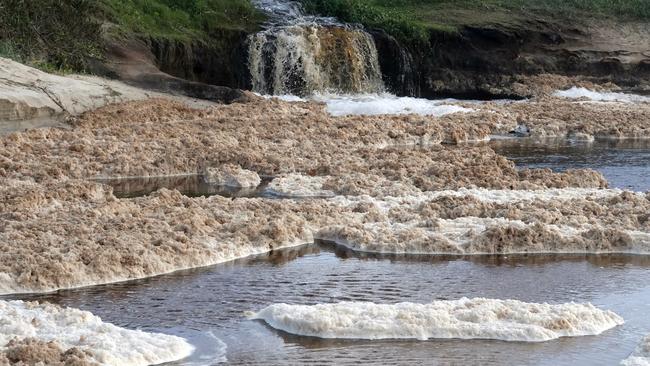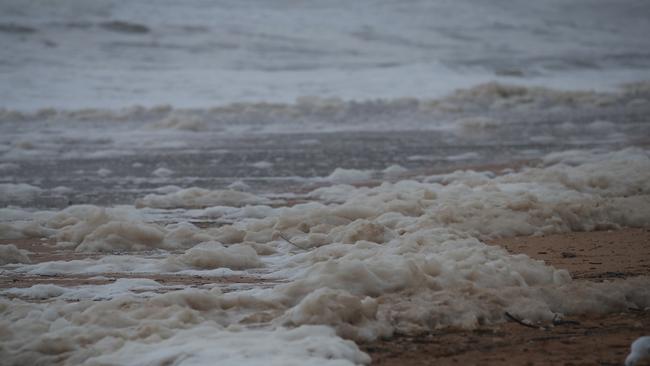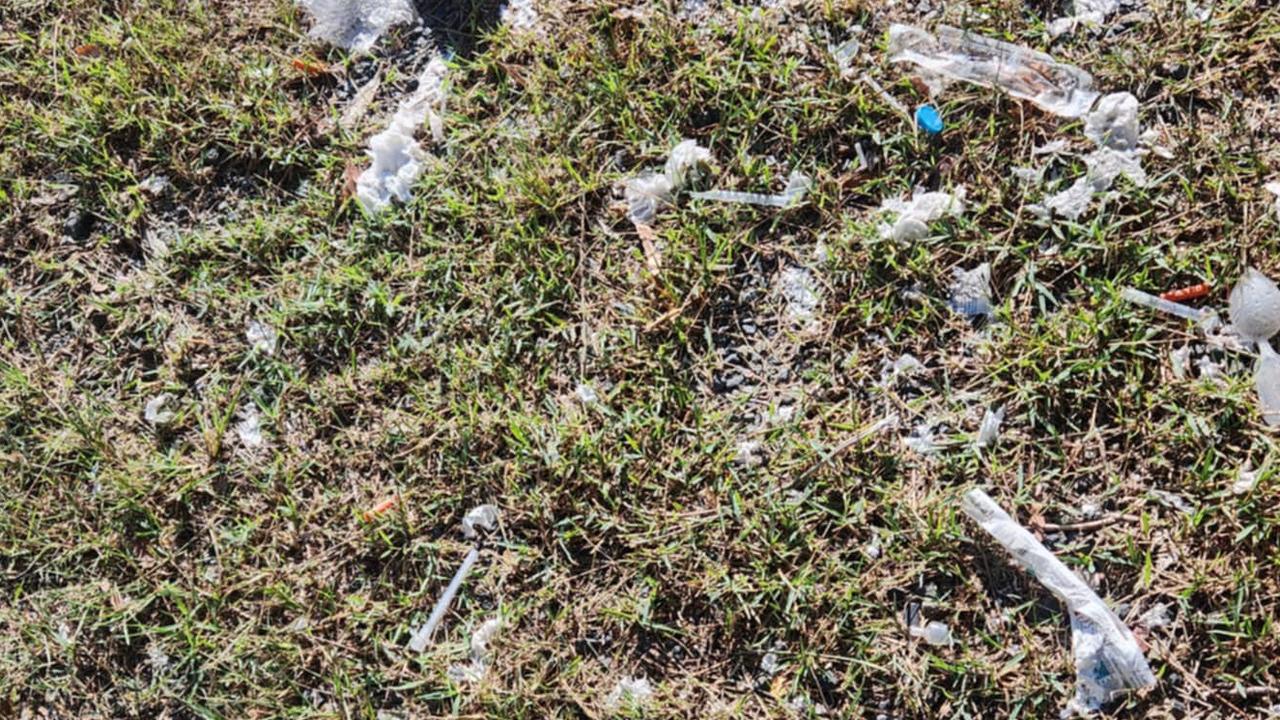Health hazards from swimming in flood water outlined by Dr Dan Ewald and Dr Linda Swan
Doctors outline some of the major health hazards to be aware of when holidaying this Easter season, including the storm foam and dirty waters. See what the experts said.

Tweed Heads
Don't miss out on the headlines from Tweed Heads. Followed categories will be added to My News.
As holiday season approaches, many holiday-goers remain keen to visit the North Coast for an Easter trip, despite recent floods.
Swimmers have been urged to show caution as waters have been contaminated by sewage, waste, car fuel as well as dead animals.
Dr Dan Ewald from Lennox Head Medical said there have been particular problems with “nasty infections” since flooding.
He said he has seen “aeromonas infections” from scratches, which can cause gastroenteritis, meningitis and peritonitis.
He said untreated sewage can increase the organisms living in the water, causing a higher chance of infection.

He said he saw cases where infections were unable to respond to typical antibiotics and required “a combination of different antibiotics”.
“The dirty water consists of suspended inorganic matter – from soil organisms and dung from farm fields,” Dr Ewald said.
He said the water is “badly contaminated” and it would be “sensible to avoid swimming”.
The foam that many children play in was also highlighted as a risk to safety as it’s polluted as well.

“People love to play with the storm foam, but kids can disappear within it and can't breathe – you can’t swim in it and there’s no buoyancy,” he said.
He said testing can be unpredictable, as tidal systems shift the dangers.
“The report from one day won’t tell you what it will be another,” he said.
He recommended a more “systematic” approach to testing, and said waterways with no flow are more of a concern.

“I would avoid being in the water. There are germs out of soils and non functioning sewerage treatment works,” he said.
He also noted warm air combined with stagnant waters is a “perfect mosquito breeding” condition.
“It would be no surprise if we saw an uptick in mosquito borne viruses,” he said.
Japanese encephalitis can spread through mosquitoes.
“Swimmers’ ear” and other ear infections are more common due to the polluted waters.
NSW Health have also advised of an increased risk of leptospirosis.
Chief Medical Officer for Medibank Dr Linda Swan said swimming is not advised.
“Floodwaters can be incredibly dangerous. Coupled with unpredictable water flow, there may be large and dangerous objects submerged in the water that could physically harm those swimming,” Dr Swan said.

“Another significant threat is the risk of infection from water contaminated by sewage and chemicals, she said.
“Bacteria can enter the body through the eyes, nose, mouth or skin cuts and abrasions.”
Dr Swan warned prolonged exposure to contaminated waters could result in gastro, eye infections, ear infections and wound infections.
Graham Lancaster, Founding Manager and Director of the Environmental Analysis Laboratory said there was a “big improvement” in the water quality.
In his latest tests, which sampled “Faecal Enterococci”, he said the water quality was looking good as of last Sunday.
More Coverage
Originally published as Health hazards from swimming in flood water outlined by Dr Dan Ewald and Dr Linda Swan




